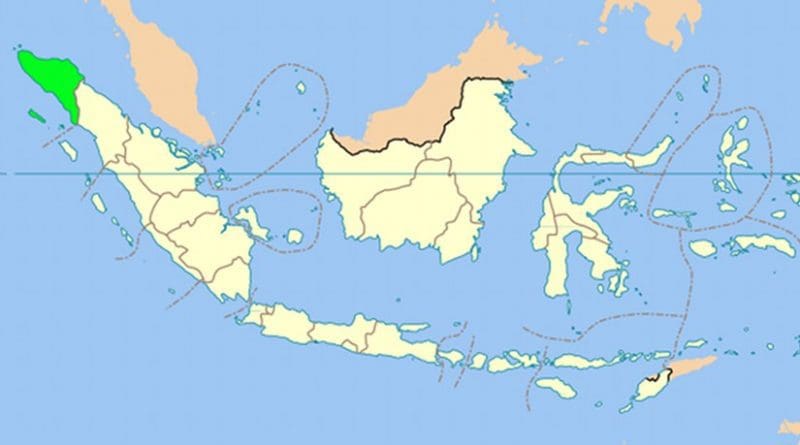Indonesia: New Shariah Law Takes Effect In Aceh
By UCA News
By Katharina R. Lestari
Church leaders in Indonesia’s Aceh province want a new Islamic criminal code to respect non-Muslims living in the predominantly Muslim region.
The local Shariah-based bylaw, called qanun hukum jinayat, took effect Oct. 23 following a one-year introduction to the public. It stipulates harsh punishments, including caning, for a range of offenses, including same-sex relations, drinking alcohol, gambling, adultery, sexual harassment and rape.
Catholic and other Christian leaders worry how the bylaw will be implemented.
“Shariah law is only for Muslims. For non-Muslims, I don’t think they are obliged to follow the legislation,” Father Hermanus Sahar from the Most Sacred Heart of Jesus Parish in Banda Aceh, the provincial capital, told ucanews.com.
Authorities say non-Muslim offenders caught violating the law while with a Muslim person will be given the option of being tried in a Shariah court, or in regular court using the national criminal code.
Baron Perison Pendiangan from the province’s Directorate for Catholic Community Guidance, says the new bylaw should not apply to non-Muslims at all.
“We worry about it. Aceh pushes too hard. Be fair. Aceh is a multicultural, multiethnic and multireligious society,” he told ucanews.com.
“If we want to implement Shariah law, it has to be applied to Muslims,” he said, pointing out that Catholicism has its own canon laws that only applies to Catholics.
The Rev. Domidoyo Ratupenu, from the Protestant Church in Western Indonesia, based in Banda Aceh, called the new bylaw unfair.
“There will be injustice if a law is implemented only based on a certain party’s view. The new bylaw is an unfair action by the local government,” he told ucanews.com.
Meanwhile, London-based Amnesty International and the Institute for Criminal Justice Reform have called for an immediate review or repeal of provisions violating human rights.
The rights group said in an Oct. 23 statement that it was concerned that the Aceh Islamic criminal code had expanded the range of offenses for which caning would be imposed.
However, Syahrizal Abbas, who heads Aceh’s provincial Shariah agency, said the new bylaw aimed to prevent Muslims from violating Shariah law and to create justice and welfare for all Acehnese people.
“The nature of the law isn’t to punish people,” he told ucanews.com.
He acknowledged that the new bylaw wasn’t yet perfect. “Yes, it needs to be criticized. We hope there will be a control so that the enforcement of the new bylaw can run smoothly,” he said.

